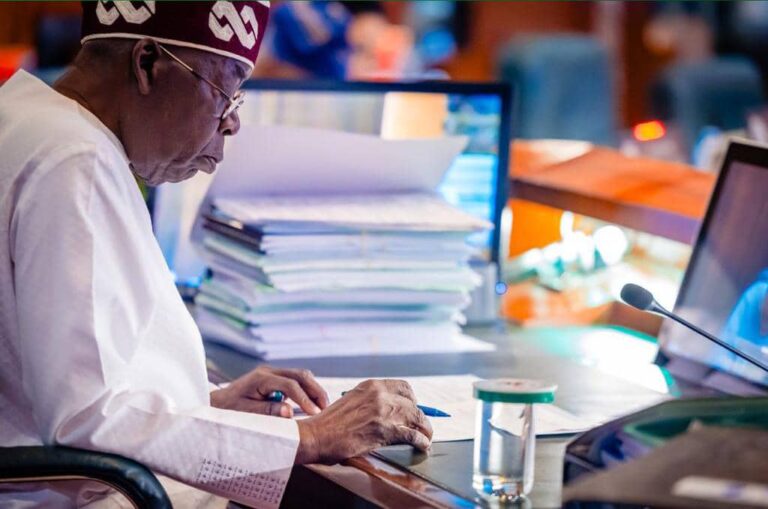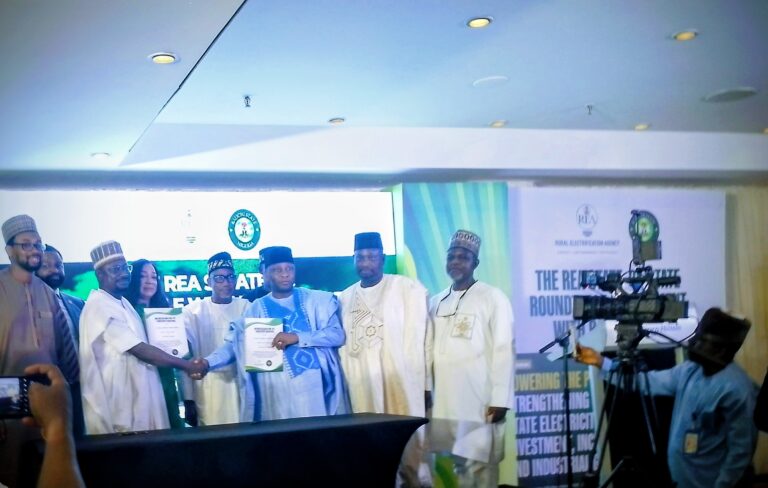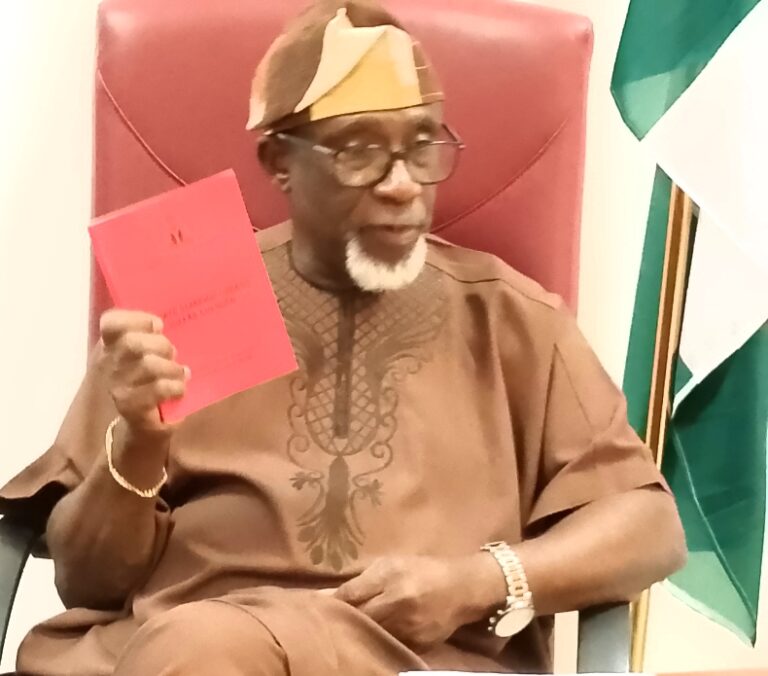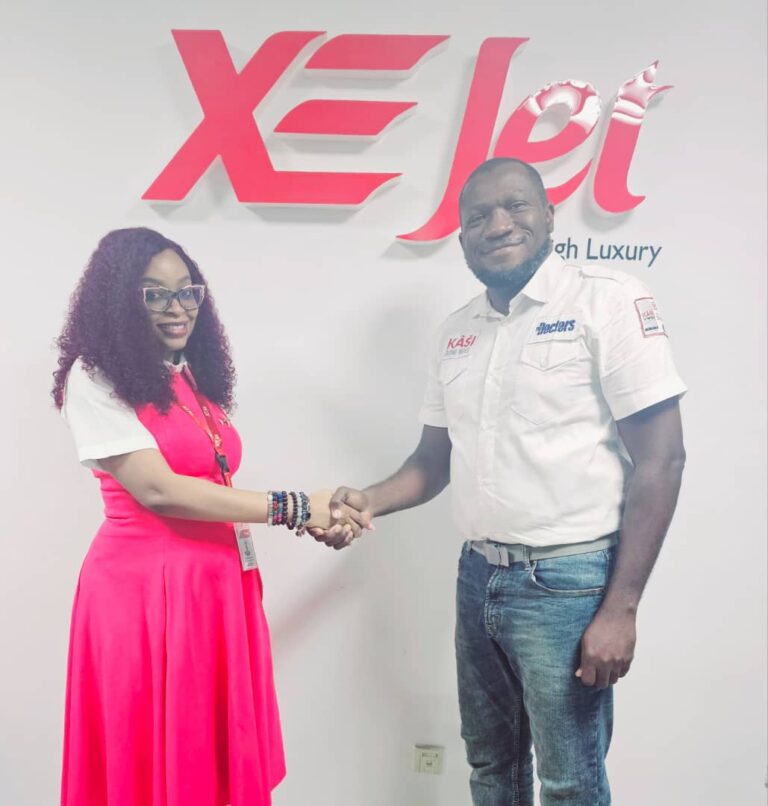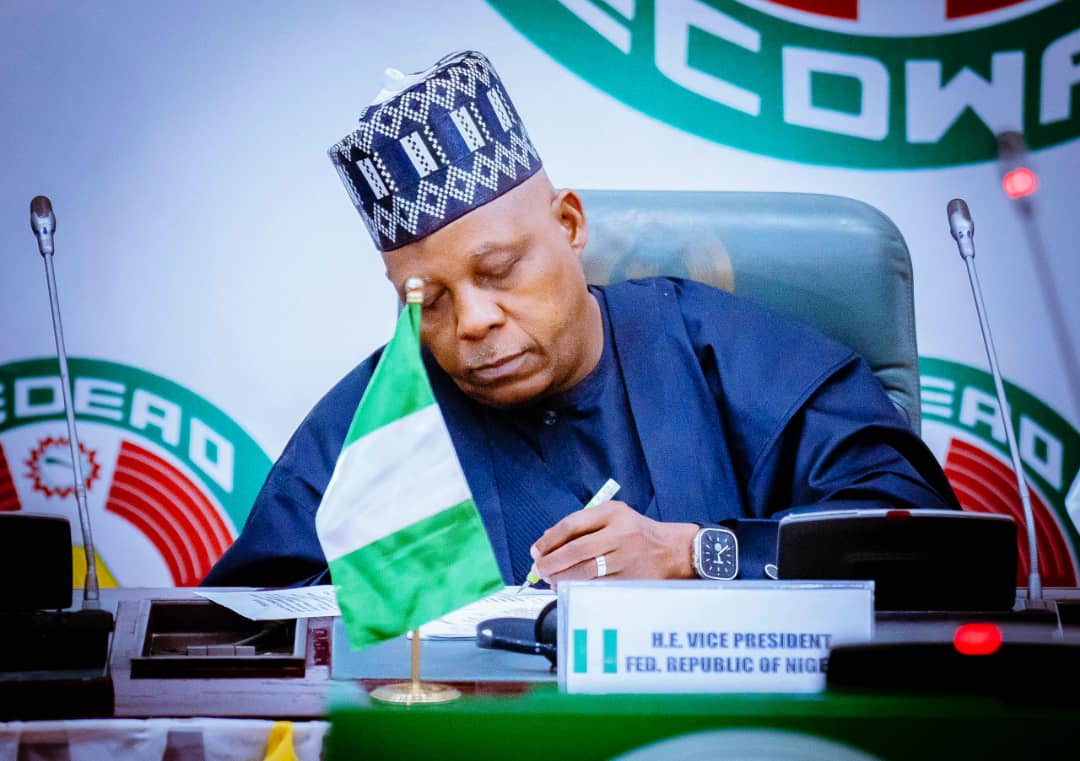
…….Establishes NACIWA’s permanent headquarters in Nigeria
Determined to eradicate corruption in the region, Chairman of the Authority of Heads of State and Government of the Economic Community of West African States (ECOWAS), President Bola Ahmed Tinubu of Nigeria, has urged member countries of the regional body to promptly ratify and comprehensively implement the ECOWAS Protocol against Corruption.
Emphasizing the importance of transitioning from mere commitment to tangible action, President Tinubu implored ECOWAS member states to proactively adopt and enforce the anti-corruption protocol.
He stressed that the future of the region relies on its ability to construct governance structures that are not only transparent, accountable, and efficient, but also prioritize the welfare of the people.
Addressing attendees during the 6th Annual General Assembly of the Network of National Anti-Corruption Institutions in West Africa (NACIWA) at the ECOWAS Secretariat in Abuja on Monday, the Nigerian leader, represented by Vice President Kashim Shettima, announced Nigeria’s generous donation of a property to serve as the permanent headquarters of NACIWA.
“In acknowledgment of NACIWA’s pivotal role in our regional anti-corruption endeavors, I am pleased to announce that the Nigerian government has gifted a property to serve as NACIWA’s permanent headquarters. This gesture underscores our dedication to enhancing NACIWA’s institutional capacity and providing a stable operational base.
As we deliberate on implementing the ECOWAS Protocol against Corruption, I urge all member states to reaffirm their commitment to this cause,” President Tinubu expressed.
The ECOWAS Chairman urged member countries to transcend rhetoric and concentrate on concrete measures aimed at harmonizing their legal frameworks to close loopholes exploited by corrupt individuals.
He outlined additional actionable steps such as bolstering cross-border cooperation in investigations and asset recovery, investing in innovative technologies to detect and prevent corrupt practices, promoting transparency in public procurement and resource management, engaging civil society and the media as partners in anti-corruption initiatives, and fortifying the independence and capacity of national anti-corruption institutions.
Advocating for the full implementation of the ECOWAS Protocol against Corruption, President Tinubu declared, “The challenge before us is substantial, but so is our collective determination. Through collaboration, sharing best practices, and leveraging our diverse strengths, we can establish a formidable defense against corruption in West Africa. All member states must ratify and fully implement the ECOWAS Protocol against Corruption. Let us progress from commitment to action, from intention to execution. The future of our region hinges on our capacity to establish transparent, accountable, and efficient governance structures that prioritize the interests of our populace.”
Highlighting the perils of corruption, President Tinubu asserted that it remains “a significant impediment to the advancement and prosperity of our nations. It undermines the very foundation of our societies, erodes public trust, and obstructs the equitable distribution of resources. As leaders, we bear the responsibility of confronting this challenge resolutely and with concerted action.”
Enumerating the measures he has undertaken to combat corruption in Nigeria since assuming office as President last year, the ECOWAS Chairman mentioned that he has fortified “all anti-corruption agencies in Nigeria by refraining from interfering in their operations and ensuring they receive adequate funding. I have also encouraged them to function within the confines of the law. This is a blueprint that I recommend to other states within the region,” he added.
President Tinubu reiterated Nigeria’s unwavering commitment to NACIWA’s success “and the broader anti-corruption agenda within ECOWAS,” assuring that collaborative efforts will enable member countries to “establish more robust institutions, foster regional unity, and pave the way for a prosperous and corruption-free West Africa.”
Earlier, Nigeria’s Minister of Foreign Affairs, Ambassador Yusuf Tuggar, underscored the urgent need for regional and global cooperation in the fight against corruption, characterizing it as a malignancy that jeopardizes Africa’s stability and progress.
“Corruption is a malignancy that has deeply infiltrated the fabric of many African nations. It has persistently impeded development, undermining our institutions, eroding public trust, and exacerbating poverty,” Tuggar articulated.
He further emphasized that in Nigeria, corruption has fueled insecurity and discontent, elevating it to a matter of life and death.
Ambassador Tuggar also drew attention to the staggering financial losses resulting from corruption, citing UN estimates that Africa loses $88.6 billion annually to illicit financial flows—funds that could have been allocated to essential public services such as schools and hospitals.
Additionally, Nigeria’s Attorney-General of the Federation and Minister of Justice, Lateef Fagbemi (SAN), underscored the critical role of collaborative endeavors in combating corruption.
“The fight against corruption is not merely an institutional obligation, but a pivotal stride towards securing a brighter future for our nations. We must diligently implement policies and strategies that effectively counter this menace,” Fagbemi remarked.
The Chairman of the Economic and Financial Crimes Commission (EFCC), Mr. Ola Olukoyede, urged regional anti-corruption entities to adapt their strategies to evolving threats.
“Corruption continues to evolve, assuming new guises and exploiting technological advancements. We must continuously adjust our strategies and enhance our capacities,” Olukoyede asserted.
The Chairman of the Independent Corrupt Practices Commission, Dr. Musa Adamu Aliyu, stressed that the fight against corruption is a protracted struggle necessitating unwavering dedication.
“Confronting this multifaceted challenge has become imperative given the debilitating hurdles and repercussions posed by corruption on economic development,” Aliyu remarked.
He called for strict adherence to the 2021 ECOWAS protocol on anti-corruption and advocated for the utilization of digital tools to augment the efficacy of anti-corruption measures.
Representing the ECOWAS President, Commissioner for Political Affairs, Peace, and Security, Abdel-Fatau Musah, outlined the progress made by ECOWAS in collaboration with national anti-corruption agencies, including the implementation of policies that promote transparency and good governance.
However, he acknowledged that there is still considerable work to be done.
“Corruption remains one of the most formidable challenges facing our nations. It impedes economic growth, erodes public trust, and obstructs the development of our societies. As we convene today, we must reaffirm our commitment to tackling this issue head-on,” Musah emphasized.
Attendees at the summit included Chairman Senate Committee on Anti-Corruption and Financial Crimes, Udende Emmanuel; Comptroller-General of Nigeria Customs Service, Adewale Adeniyi; Heads of ECOWAS Anti-Corruption Agencies, and representatives of UN agencies, among others.

